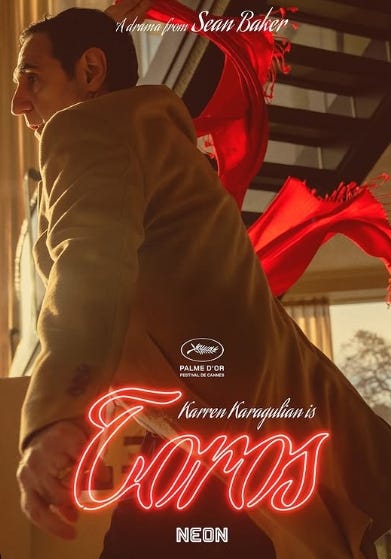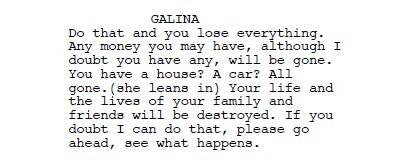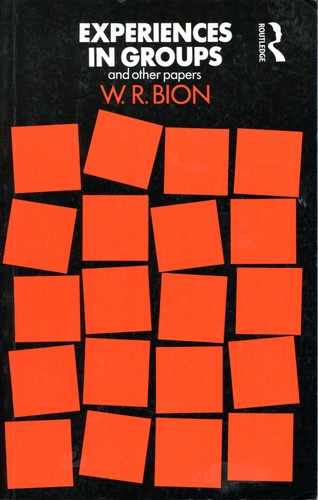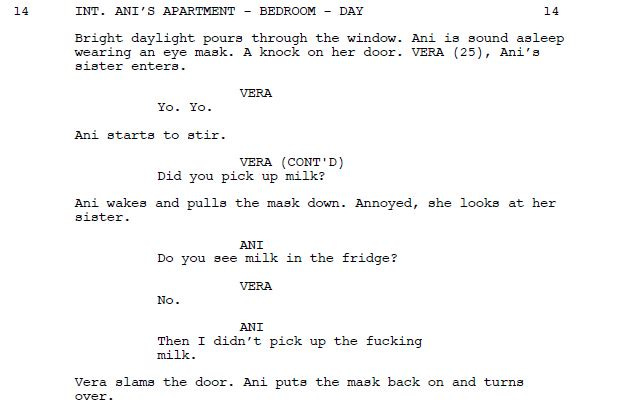The Marriage Plot
Why it’s more crisis than lysis in the best of modern cinema
“What is wrong with you?” - one of the great questions of life and drama, also a line cut1 from the final scene of Sean Baker’s Anora. The picture is no worse for the omission, and probably – since that final scene is doing a lot of work on a lot of levels – better for it. Besides, the movie, like its lap-dancing protagonist, is not shying away from matters, not least the question, what is wrong with us – the humans – as a whole?
I loved Anora, and I was lucky enough to see it at the cinema. It kicked a glorious dent in a dour week before Christmas, and if you get a chance to see it at the movies I wager it might enliven your New Year too. It will not be everyone’s cup of tea, but it is mine. I chalk this up to a style of film making I first became consciously aware of when I made a belated 2020 acquaintance with the Safdie brothers 2017 film, Good Time. That and its successor, the equally stressful-but-brilliant Uncut Gems, are examples, with Anora, I think, of an elevated genre in North American, independent cinema organised around what I think of as a ‘Bad Day’ plot. In the Bad Day plot, something goes down and the characters are compelled by nature and circumstance to fix it, with very little time, insufficient resources and a naive sense or even a doomed ignorance of what the wider world has in store for them.
When I came out2 of Uncut Gems I thought the Safdies had taken the much-loved “I was gonna be busy all day” sequence3 from late on in Goodfellas and thought – ‘what if a whole movie felt like this?’ Anora is different, it takes some of that idea and situates in a second act that follows a prolonged (40 pages/minutes by my reckoning) opening act that takes the audience to the brink of ‘OK, but what is this going to be about?’ and then hits you with a relentless, ninety-minute answer.
A big part of that answer, for me, is a character called Toros, played by Karren Karagulian. There is substantial awards buzz for Anora. Doubtless and rightly much of that will fall on its star, Mikey Madison, and director, Parker - but I hope Karagulian gets some recognition because amongst a small and uncommonly good cast, he’s the one for me. There are likely multiple reasons for my bias here beyond a great part and performance – I am closer in age to this character than the leads, and have become, I hope, closer to their role, being more of a middle-aged, neurotic semi-solver of problems than a young, pathological causer of them. I consider that a kind of progress, although perhaps it’s not for me to say.
Anora is a singular take on the Bad Day plot because it is also a good, old-fashioned, marriage plot in essence although, in the best traditions of genre it respectfully abducts its classic foundations (something similar befalls the lead) and takes them somewhere original. For all that, there are familiar aspects to it. Anora is filmed around Brighton Beach and Coney island and set among New York’s Russian and Armenian communities (you can peruse one of the more salubrious locations here). There’s something appealing about New York City’s outer boroughs, if you enjoy that sort of thing. In the same way as the Safdies take us through less-storied parts of Farmingdale, Queens and Brooklyn in Good Time, or The Sopranos Newark. Anora is a call back, for cinema fans, to Warriors country.
The great thing about classic plots and structure is that propelled by archetypal force, they never really die. As luck would have it, I made a nine years after the fact exploration of Wolf Hall on iPlayer just after watching Anora and was struck, as Mark Rylance did his phenomenal best to arrange and dismantle marriages for Henry VIII, that Thomas Cromwell and Toros were in some ways the same.
The Wolf Hall/Anora connection runs deeper than their respective fixers, however, as both, albeit in quite different ways, unfold in the shadows of absent fathers. The character of Cromwell is suspended, torn even, between his dead, violent father, his idealized father/employer, Cardinal Wolsey and his de facto father/patron (who is also younger than he is) - the king. It is a telling moment and one enhanced immeasurably by an actor as subtle as Rylance, that when he does break down, it is as his faith in the approval of the symbolic father (Wolsey) disintegrates, rather than death of his real father or at the wrath of his liege. Cromwell’s last words, “Father, forgive me,” suggest this was central to Hilary Mantel’s navigation of things, or at least Peter Straughn’s excellent adaptation. I confess, I have still not read the books despite invoking them (sincerely) in this staggeringly (by my standards) well-viewed tweet .
In Anora we must wait for almost two hours before the oligarch whose power sustains the story world to appear – and then the character is low-key, compared to his spouse, who delivers the following piece of dialogue - which I hope you don’t consider a spoiler but more of trailer, either way, feel free to look away now:
Insofar as the movie is concerned, like Wolf Hall, with the perverting effects of being proximal to power, this is its ‘us and them’ moment, when we and the protagonist appreciate that although we might have tasted of the good life, what we took for a meal was really just a canape, and they will not require, desire or permit us at the banquet. From that point on, it’s go hard or go home.
Marriage and class drive many stories, but the persistent re-emergence of the marriage plot suggest something in it which touches us a primal level, more so even than love and status. I confess that the psychoanalyst Wilfrid Bion is something of a hero of mine. While the First World War prompted Freud downgrade his hopes for civilization, he did so from his study. Bion was young enough to take part, and he would go on to be one of the formative thinkers, writers and practitioners (Samuel Beckett was his client) of analytic thinking in the 20th century. One of his many contributions to the field was in the realm of group dynamics. As a first-hand witness to a world falling apart he thought long and hard about, “what’s wrong with us?” and his findings, I think, are key to understanding some of Anora’s appeal.
Bion can be tough to read, I have tried, and I hope I can do a kind of approximate justice to his ideas here. At the core of his thinking about group behaviour is the idea of what Bion called, the ‘basic assumption group.’ Basic assumption groups are an unconscious form of behaviour that any set of humans can fall into - when under pressure - at any time. As Bion sees it there are three types of these groups, each with a default strategy as to how to address the question under much human discomfort, neatly summed up here as “who or what will save us?”
One option, which Bion calls ‘Fight or Flight’ is just that. The group will organize itself to attack or run away. Another, ‘Dependency’ is almost the opposite – a wilfully de-skilled, listless group who assume that someone who knows what they doing will surely come. The third, I think, is part of what brings us to the marriage plot, this group Bion called, ‘Pairing.’ The pairing group marries the drive of the ‘Fight/Flight’ group to the ‘anyone but us’ thinking of ‘Dependency.’ In the Pairing group, the collective energy constellates towards a couple who will literally or symbolically produce the messiah4 that the dependency group are hoping for.
If you have ever wondered why aristocracy is such a persistent phenomenon (and the oligarch class of Anora are absolutely a version of that) Bion suggests that their existence is the result less of sociopolitical systems than of, deep, instinctual drives. It’s not a fashionable idea, but it was never meant to be, the contention is that these behaviours are transcultural and timeless. Certainly, they work well in movies. We see couples – we tend to root for them, no matter how absurd their chances. We may do so thinking we are ‘romantic,’ Bion might say we are unconsciously desiring to be saved. Either way, we keep watching and wishing in spite of ourselves. It is a wise story teller, or a natural one, who arranges things thus.
Interestingly perhaps, Billy Wilder, who, with his writing partner I.A.L Diamond gave us one of the great (the greatest, IMO) marriage plot/rom coms, 1960’s The Apartment, held out little hope for his leading couple after Shirley MacLaine’s legendary last line, “Shut up and deal,” concludes the film. “I didn’t think it was going to work out for them,” Wilder says in Charlotte Chandler’s biography of him, “because they don’t seem made for each other. He is out of work and it looks like she soon will be. Lack of money can be a big irritant between people. Neither of them seems very good at solving their problems. I had hoped for them, but as a betting man, small stakes for Monday night football, I wouldn’t bet on it. I think the apartment was going to have a, ‘for rent’ sign on it.”
Lysis (which I cleverly rhyme with ‘crisis’ at the top of the page there) is a word used in both biology and drama, to mean (I think) more or less the same thing. In medicine it denotes a cellular change that brings about the end of a fever. Dramatically it denotes a similar cooling, from the conflicting to the reflecting parts of the story. I would say that Anora’s lysis is its seven-page closing act, which lands with an ambivalent punch (if there can be such a thing) entirely appropriate to its preceding drive. Bion and Billy Wilder were realists who knew conflict on a world level as well as in session and on screen. I know less about Sean Baker, but his film seems to be expressing a similar truth. Unlike the super-rich, love needs work, or it ends.
Thanks for reading - if you want more, consider this plea for reading itself from the dependably sage Ian Leslie:
Bonus screenwriting note: “How much backstory?” is a question I get from students. Here is all the lead’s backstory (sense of character’s life & circumstances prior to main story) in Anora, and it’s enough.
Based on a draft of the script dated 22 April 2023.
This was one of Netflix’s cinema releases, and I enjoyed a second, small screen viewing shortly after. That was 2020 - for an assesment of how their slate works these days see Will Tavlin’s thorough piece here - not a fun read for movie writers: Casual Viewing | Issue 49 | n+1 | Will Tavlin
Note the doctor who takes pity on Ray Liotta’s Henry Hill here is played by Isiah Whitlock Junior famous, among other things, for his prolonged approach to the phoentics of obscenity in The Wire.
The bad news for us and our aristocracies is that, in Bion’s view, the messiah must not come. It is the hope that lends the group coherence. The actual or alleged apperance of the desired figure will trigger a ‘fight’ group who will then destory them, only to resume their pairing formation by spending the rest of time praying for their return. Perhaps this reminds you of something…






